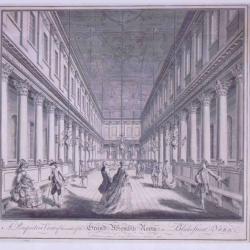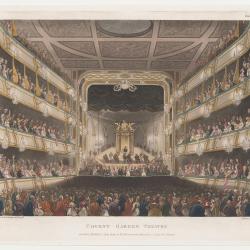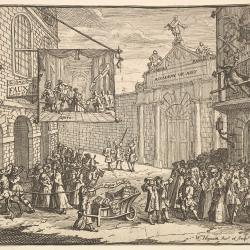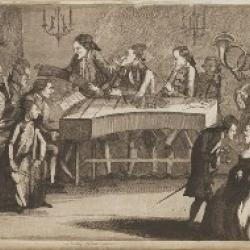
Assembly rooms
BURLOCK Hillary
In the long eighteenth century, assembly rooms became an established institution in Britain’s towns and cities, growing in number over the course of the ‘century’. Assembly rooms across Great Britain became the physical and social heart of the community, places where men and women could meet to converse, dance, and attend lectures and concerts.

Ballet
EMORY-MAIER Ambre
Ballet has been used through the centuries as an agent for spoken and unspoken sociability on the stage, in the audience and behind the scenes. Britain had an aversion to the French form of ballet and associated its presentation and culture as indulgent excess.

Masquerades in London
LIPSKI Jakub
Masquerades – sociable assemblies of masked participants – developed into forms of public entertainment in eighteenth-century London, often welcoming crowds of participants in the fashionable centres of the metropolis, such as the Haymarket Theatre, Vauxhall Gardens or Ranelagh Gardens. The masquerade phenomenon provides insight into the category of personhood that was negotiated through a sociable performance of anonymity and new ‘selves’.

Musical evenings (Dr Burney's)
HANSEN Mascha
The ‘Sunday evening musical parties hosted by Dr. Burney’ were informal gatherings of musicians as well as writers, actors, and painters, in order to perform in and listen to concerts, given both by amateurs and some of the most brilliant singers and musicians of the day.